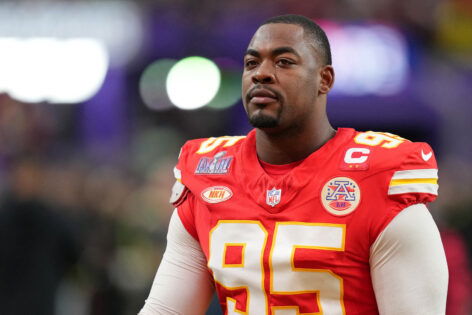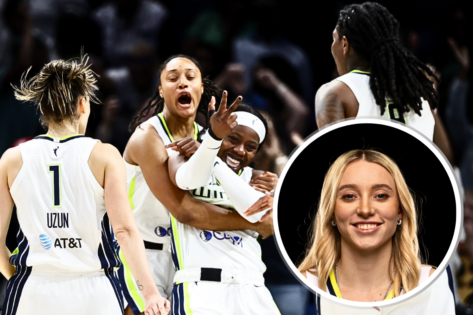When Joel Dahmen bogeyed his final three holes at the Corales Puntacana Championship, losing what seemed like a certain victory, most expected him to dodge the media. Instead, his brutally honest interview has forced golf’s media to confront an uncomfortable truth about player obligations. The brutal honesty of his post-round comments sparked a larger conversation about what players truly owe to the press after devastating losses.
Golf Today’s roundtable podcast highlighted Dahmen’s raw reaction. Golf Channel senior writer Ryan Lavner challenged long-held assumptions about player obligations. “I don’t think that players necessarily owe us anything as media members,” he said. “But it’s often instructive and illuminating when they do talk.“
This statement connects directly to Collin Morikawa‘s controversial Bay Hill exit, where he refused media interaction after blowing the lead. Lavner offered crucial context: “It’s worth remembering that Morikawa met with reporters two days later at TPC Sawgrass, and he was fantastic.“
Dahmen’s immediate reaction contrasted sharply with Morikawa‘s approach. After leading for three rounds and shooting 62 and 66 in the first two rounds, Dahmen collapsed spectacularly. He bogeyed three straight holes to finish the tournament, including a crucial missed putt from under two feet on the 17th. “I think I’m in a little bit of shock, honestly,” Dahmen admitted. “It’s not how you win a golf tournament. I don’t deserve to win it.“
PUNTA CANA, DOMINICAN REPUBLIC – APRIL 20: Joel Dahmen of the United States walks off of the 15th green during the final round of the Corales Puntacana Championship 2025 at Puntacana Resort & Club, Corales Golf Course on April 20, 2025 in Punta Cana, Dominican Republic. (Photo by Andy Lyons/Getty Images)
The Golf Today panel debated implementing a cooling-off period like other sports. “Should there be a 10-minute cooling-off period? You know I covered the NBA, covered the NFL, the locker rooms closed, then they open it up to the media,” the host asked.
Unlike golf, the NBA and NFL have formal cooling-off periods. The NBA requires a 10-minute wait before media can enter the locker rooms after games. The NFL similarly closes locker rooms temporarily after the game. These policies allow players time to process emotions before facing questions. Golf has no such formal policy, leaving players to choose immediate media interaction or face criticism for declining.
Golf Digest’s Joel Beall rejected adopting similar protocols. “I actually think it’s to their detriment. You get the more raw emotion immediately after it happened,” he argued. He raised concerns about agent intervention: “You never know if an agent can intervene and maybe tell them what to say.“
While acknowledging player wellbeing, Beall maintained: “From a mental health standpoint, whatever they need to feel comfortable talking, give it to them. But I actually think it’s better for them if they talk immediately after the moment.“
Player autonomy in post-round obligations sparks broader discussion
The debate over mandatory media obligations has intensified recently. Rory McIlroy weighed in after Morikawa’s Bay Hill incident. “We have that option to opt out whenever we want, expect guys to do that from time to time,” McIlroy stated. His comments validated the idea that players deserve autonomy in these situations.
McIlroy himself exercised this autonomy at the 2024 U.S. Open. Remember when he stormed out of Pinehurst after missing crucial short putts? He declined all media requests and left immediately. No one heard from him for days after losing to Bryson DeChambeau.
Morikawa’s approach differed from those of both Dahmen and McIlroy. He skipped immediate media obligations at Bay Hill but addressed the situation two days later. “I was in the moment. We talk about giving people space to be who they are,” he explained at TPC Sawgrass. His choice to speak later provided perspective without compromising his immediate emotional needs.
These varying approaches demonstrate how players handle post-round media obligations differently. Some, like Dahmen, process emotions publicly minutes after defeat. Others, like McIlroy, need complete separation from media scrutiny. And players like Morikawa find middle ground, taking time before providing thoughtful responses.
As golf grapples with media expectations versus player wellbeing, Joel Dahmen’s example shows there’s no one-size-fits-all approach. His brutal honesty earned respect, but that doesn’t mean every player must follow suit. The real question remains: Should respect for players’ emotional needs take precedence over media demands?
The post Golf Journalists Refuse to Go Easy on Rory McIlroy & Others While PGA Tour Lags Far Behind NBA, NFL appeared first on EssentiallySports.



